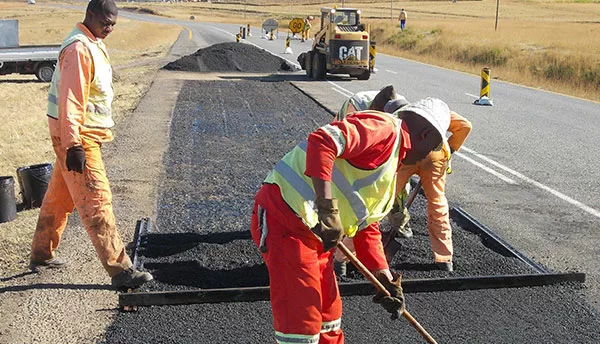When Nigeria’s new government assumes power on May 29, 2023, it will be imperative to accelerate the building and maintenance of roads across the country.
That Nigeria has entered the African Continental Free Trade Agreement (AfCFTA) field of play, problems that had been latent in the past will no doubt become obvious sooner than later. One of such problems is a good road network for the quick conveyance of manufactured and agricultural goods to intended consumers across the continent.
Although Nigeria’s AfCFTA committee alleges that infrastructure deficit will not inhibit the country’s participation, there are obvious disadvantages of poor infrastructure in any free trade area.
Roads make a crucial contribution to economic development and growth, and bring important social benefits. They are of vital importance in order to make a nation grow and develop. In addition, providing access to employment, social, health and education services makes a road network crucial in fighting against poverty. Roads open up more areas and stimulate economic and social development. For those reasons, it is a verity that road infrastructure is the most important of all public assets. As such, they must be maintained and expanded.
However, over the years, several federal roads have degenerated into a state of abject disrepair. The Badagry Expressway in Lagos that connects Nigeria to most countries of the West African sub-region, is still being worked on at snail’s pace.
The Enugu/Port Harcourt, Enugu/Onitsha, Jebba/Mokwa/Bida Road are classic examples of growth inhibiting infrastructure decay.
That the state of the roads has degenerated to such conditions suggests neglect over the years, which have resulted in higher cost to government, and by implication, taxpayers.
Surveys show that adequately maintaining road infrastructure is essential to preserve and enhance benefits. But a backlog of outstanding maintenance has caused irreversible deterioration of road networks. If insufficient maintenance is carried out, roads can need replacing or major repairs after just a few years. That deterioration spreads across road systems very quickly, and results in soaring costs and a major financial impact on the economy and citizens.
With this in mind, the importance of maintenance needs to be recognised by decision-makers. However, in most instances, this is not recognized, and as a result poor asset management means that many road networks in Nigeria are not in good condition.
The Federal Road Maintenance Agency (FERMA) is saddled with the responsibility of efficiently and effectively monitoring and administering road maintenance with the objective of keeping all federal roads in good and safe conditions. The agency’s goal is to become the most efficient road maintenance management organization that will enhance the economic well-being and interest of Nigerians.
However, in recent times, the presence of FERMA on federal roads has been less conspicuous. This calls for more funding for the federal agency.
While it is true that the Buhari government inherited some of the infrastructure decay Nigerians are suffering, and that the federal government is currently undertaking broad spectrum repair of roads, it is imperative that the federal government fast-tracks the building and maintenance process.
Giving attention to road maintenance will bring widespread benefits by not only preserving current assets but also lowering future costs for citizens, road users, taxpayers and road owners. This would prevent these assets from depreciating in value, provided that timely investment is carried out.
The time to do that cannot be more urgent than now as Nigeria goes into competition with 53 other African nations. Countries with better road networks stand to benefit more as their goods will freely flow from farm to market and from factory to market, than for countries where goods may get stuck on the road for days and perish due to bad roads.





